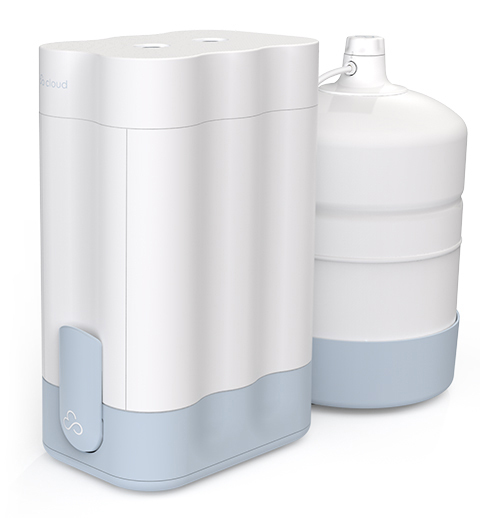Why You Should Only Buy Certified Water Filters
Any manufacturer can slap a carbon filter or RO membrane together and claim that it’s effective, but most brands tend to exaggerate their real-life effectiveness.
The NSF also develops public health standards and certification programs to protect the world’s food, water, consumer products, and the environment.
If your water filter has their stamp of approval, you can trust that your water filter will work, even when the water pressure is a little too low or contaminant levels are exceptionally high, including:
- Arsenic
- Asbestos
- Chlorine
- Chloramine
- Fluoride
- Lead
- Pesticides
- Insecticides
- Mercury
- Nitrates
- Radioactive particles
- Pharmaceuticals
Later on, we’ll discuss how to test for these pollutants so that you can find the right filter for your home.
For now, let's take a closer look at the difference between NSF and WQA water filter certifications.
NSF vs. WQA Water Filter Certifications
NSF International and the Water Quality Association both assure that your water filter system is third-party tested to do exactly what it says it does, but there are a few differences between the two...
The WQA issues their Gold Seal Certificate to demonstrate…
- The claims on the packaging are 100% true
- It’s made from safe materials
- The product is durable will hold up under normal wear and tear
Most importantly, it assures that the product will stay effective under normal at-home conditions, not just in a perfect lab-controlled environment.
In other words, if a filter is WQA-certified to remove 95% of chlorine, it will do just that.
NSF-approved products have been third-party tested to support its claims, whether that’s removing lead, arsenic, or hard minerals.
Unlike the WQA, NSF issues different badges for different types of water filtration technology, which we will cover next…
NSF Certified Water Filter Standards
Overall, NSF certified filters are guaranteed to be…
- Built with BPA-free plastics that won’t leach toxins into your water
- Made with durable materials that won’t break down easily
- Backed by rigorous third-party tests
With just a quick glance, you can tell exactly what a filter is capable of removing based on its level of NSF certification.
Here’s a quick overview of the different types of NSF certification:
NSF 53 for Carbon Filters and Common Contaminants
NSF 53 rates activated carbon filters that meet the minimum safety requirements to reduce certain harmful contaminants, like:
- Lead
- Volatile Organic Compounds (VOCs)
- Methyl Tertiary Butyl Ether (MTBE)
- Pathogens like Giardia and Cryptosporidium
But they will not protect you from the more dangerous compounds like pesticides and nuclear byproducts.
NSF 58 for Membrane Filters and Dangerous Contaminants
This NSF certification rates water filters that use membrane technology like reverse osmosis (RO) or nanofiltration to remove dangerous contaminants like lead, pesticides, and nuclear byproducts.
NSF 42 for Filters that Remove Chlorine & Improve Taste
This NSF certification rates the ability to remove chlorine and other compounds that affect taste, like iron, manganese zinc and total dissolved solids.
However, NSF 42 does not rate for the removal of dangerous chlorine byproducts. For that, you’ll need to look for NSF 401.
NSF 401 for Filters that Remove the Top 15 Most Dangerous Contaminants
NSF 401 typically applies to carbon and RO water systems.
It’s a relatively new NSF certification for reducing 15 harmful contaminants, including:
- Herbicides
- Pesticides
- Pharmaceuticals
- BPAs
- Other pollutants produced by farming and industrial operations
WQA Certified Water Filter Standards
The WQA conducts their own research to ensure that the claims on water filter packaging are backed by hard data.
They collaborate with NSF International to provide the public with thorough, up-to-date guides on certified water filters.
Here’s what their certification process looks like:
- Performance Testing: The filtration system is third-party tested to confirm that it can remove certain contaminants.
- Literature Review: All of the product’s installation manuals, packaging, labels and performance data sheets are evaluated for truth and accuracy.
- Facility Audit: Auditors visit the manufacturing facility to ensure safe, durable construction.
- Certification: Once the filter has jumped through all the necessary hoops, their file is reviewed by a panel and listed in their official database.
How to Check If Your Water Filter Is NSF or WQA Certified
The NSF and WQA websites make it super easy to find out if your water filter is officially certified.
To check for NSF certification, simply go to the NSF Certified Products and Systems Page and type in the water filter’s company name. Scroll down the next page until you find the model you’re looking for.
To check for WQA certification, head to the WQA Search Page, enter the company name, and scroll until you find your model.
Before you start the hunt for a water filter, you need to know exactly what’s lurking in your tap.
Although you can find plenty of DIY test kits, these are inaccurate and only test for a narrow range of pollutants.
If your results show that mild, common pollutants like chlorine and bacteria are your only issues, then a simple carbon faucet filter might be all you need.
However, if you test positive for dangerous contaminants like pesticides, BPAs or pharmaceuticals, then a reverse osmosis (RO) system is the way to go.
Cloud RO Water Filter is pending NSF 58 certification. One of the most stringent water filtration certifications available that focuses specifically on reverse osmosis systems.
Although there’s plenty of certified RO manufacturers out there to choose from, Cloud is the only company that uses built-in software to monitor your water quality 24/7.

